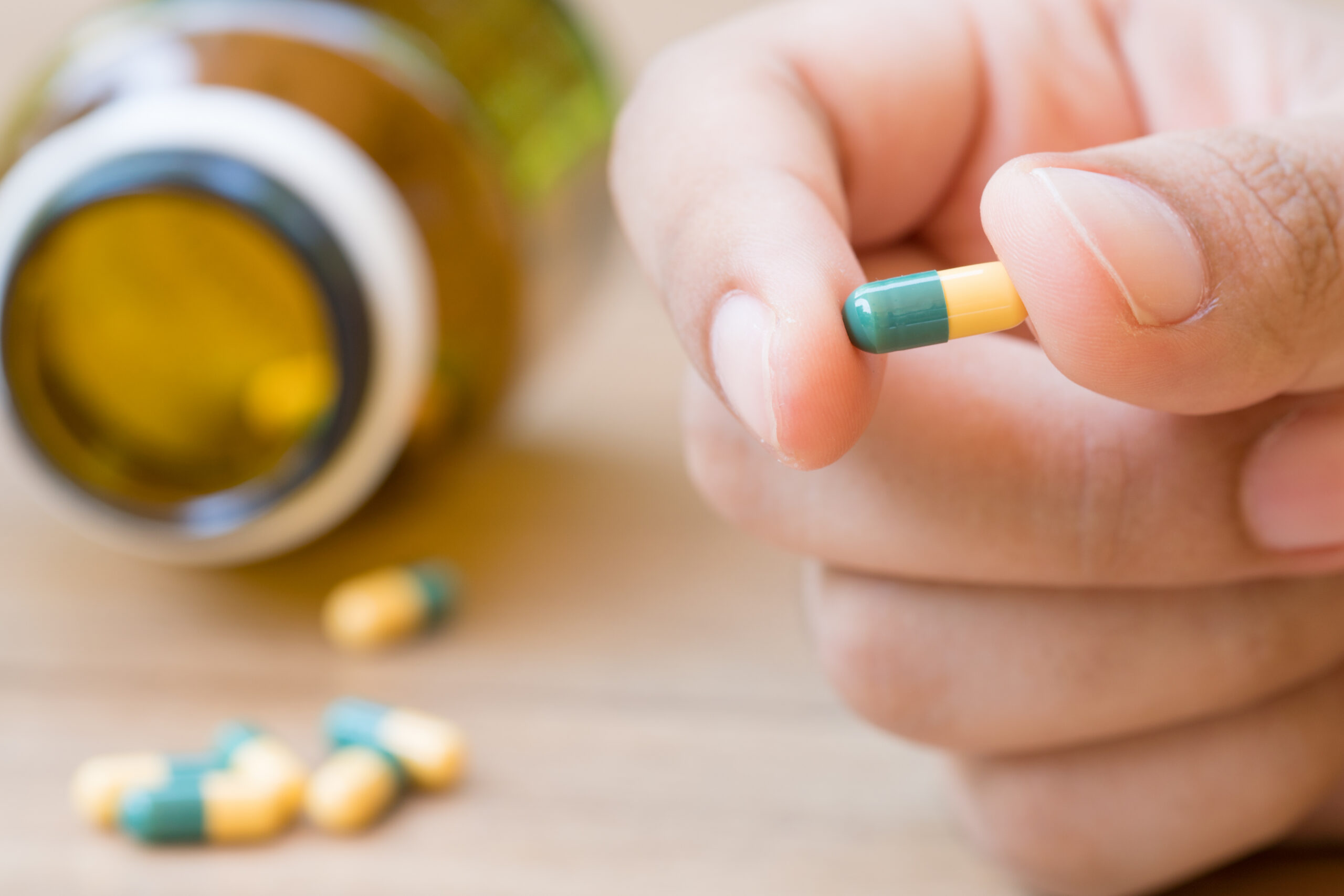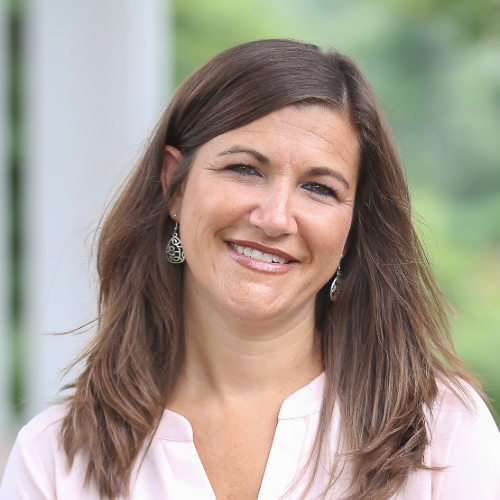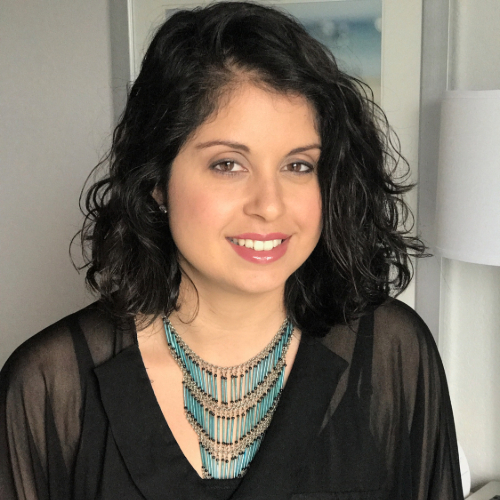Child ADHD Evaluation in New Jersey
Child and Teen ADHD Treatment New Jersey
Expert ADHD assessments for children and teens by board-certified psychiatrists in Red Bank and via telehealth across NJ, NY, and PA
A child ADHD evaluation at Kolli Psychiatric & Associates is a comprehensive 60 minute diagnostic assessment with a board-certified, fellowship-trained psychiatrist who specializes in diagnosing and treating ADHD in children and adolescents. We don’t rely on brief questionnaires or superficial assessments—we conduct thorough evaluations that include detailed parent interviews, clinical assessment of your child, review of school performance, rating scales from multiple sources, and careful consideration of other conditions that can mimic or co-exist with ADHD.
Our providers are psychiatrists with medical degrees and specialized training in pediatric ADHD—we do not employ nurse practitioners. Most families receive a clear diagnosis and treatment plan at the first visit, including ADHD medication management when clinically appropriate.If your child struggles with focus, organization, completing homework, impulsive behavior, or hyperactivity that’s affecting their school performance and home life, an ADHD evaluation can provide the answers and treatment your family needs.
Many parents spend years wondering whether their child’s difficulties are “just a phase,” normal childhood behavior, or signs of ADHD. Teachers may have suggested evaluation, or you may have noticed your child working twice as hard as their peers for half the results. Our psychiatrists help you understand whether your child has ADHD, what type, and create an evidence-based treatment plan. We offer child ADHD evaluations in-person at our Red Bank office and follow-ups via secure telehealth throughout New Jersey, New York, and Pennsylvania.
Does your child need ADHD evaluation?
Meet our Team
At Kolli Psychiatric and Associates, our team of dedicated New Jersey psychiatrists provides comprehensive, compassionate mental health services tailored to meet the unique needs of each patient. Whether you’re seeking an ADHD evaluation, depression diagnosis, or anxiety treatment in NJ, our providers are here to support you on your journey to wellness.

Dr. Sireesha Kolli
Child, Adolescent and Adult Psychiatrist

Dr. Neha Naqvi
Child, Adolescent and Adult Psychiatrist

Dr. Pooja Tandon
Adult Psychiatrist
Schedule Your Child’s ADHD Evaluation
If your child is struggling with attention, focus, organization, impulsivity, or hyperactivity that’s affecting their school performance, behavior, or self-esteem, an ADHD evaluation can provide the answers and treatment your family needs.
Call our office at 732-655-4568 or book an appointment online. We serve families in-person at our Red Bank office and via telehealth throughout New Jersey, New York, and Pennsylvania. We evaluate children and teens from across Monmouth County including Freehold, Marlboro, Rumson, Middletown, Holmdel, and surrounding communities.
Is your child struggling despite trying hard?
Let’s find out if ADHD is the reason—and create a plan to help them succeed.
What Happens During a Child ADHD Evaluation
An ADHD evaluation is more comprehensive than a brief office visit. We gather information from multiple sources and perspectives to ensure accurate diagnosis, because ADHD must be present in multiple settings and cause significant impairment in functioning.
The evaluation process includes:
Parent interview (30-40 minutes): We meet with parents first to discuss your child’s symptoms in detail, developmental history, school functioning, behavior at home, and what prompted the evaluation. We’ll ask specific questions about attention, focus, impulsivity, hyperactivity, organization, time management, and how symptoms affect different areas of your child’s life.
Child or teen assessment (20-40 minutes): We meet with your child or teen to observe their behavior, assess attention and impulse control, and understand their perspective on school, homework, and daily challenges. For younger children, this includes play-based observation. For teens, we discuss their experiences with focus, organization, school performance, and how they perceive their difficulties.
Review of school records: We review report cards, teacher comments, standardized test scores, and any IEP or 504 documentation. School performance patterns often provide critical diagnostic information about attention, executive function, and work completion.
ADHD rating scalesWe use validated rating scales completed by parents and, when possible, teachers. These standardized tools help quantify symptoms and compare your child’s behavior to age-appropriate norms.
Ruling out other conditions
We assess for anxiety, depression, learning disabilities, sleep problems, trauma, and other conditions that can cause attention problems or co-exist with ADHD. Accurate differential diagnosis is essential because treatment differs depending on the underlying cause.
Your psychiatrist will explore:
- Specific attention problems—difficulty focusing on schoolwork, homework battles, incomplete assignments, careless errors, losing things
- Hyperactivity symptoms—fidgeting, inability to sit still, running or climbing excessively (in younger children), feeling restless
- Impulsivity—interrupting others, difficulty waiting their turn, acting without thinking, blurting out answers
- Executive function challenges—organization, planning, time management, starting and completing tasks
- When symptoms started (ADHD is present from early childhood, though it may not cause problems until demands increase)
- School performance—grades, teacher feedback, ability to complete work independently, behavior in the classroom
- Social functioning—friendships, peer relationships, social impulsivity, rejection sensitivity
- Home functioning—following directions, completing chores, sibling conflicts, morning and bedtime routines
- Strengths and interests—what your child excels at, activities where they can focus
- Family history of ADHD, learning disabilities, or other psychiatric conditions
- Medical history including sleep, hearing, vision, prior head injuries, or medications
Together, we’ll determine:
- Whether your child meets diagnostic criteria for ADHD (inattentive type, hyperactive-impulsive type, or combined type)
- Whether other conditions like anxiety, depression, or learning disabilities are present alongside ADHD
- Whether symptoms are caused by ADHD, another condition, or both
- The severity of impairment and how ADHD is affecting your child’s life
- The best treatment approach—medication, behavioral strategies, school accommodations, or a combination
- Whether additional testing (neuropsychological or educational evaluation) would be helpful
After Your Child’s ADHD Evaluation: Creating a Treatment Plan
Most families leave the evaluation with clarity about whether their child has ADHD and a concrete plan to help them succeed. Here’s what happens next:
Clear diagnosis and explanation – Your psychiatrist will explain whether your child has ADHD, what type, how severe it is, and what this means for treatment. We’ll answer all your questions and help you understand how ADHD is affecting your child’s functioning.
Personalized ADHD treatment plan – Treatment typically includes ADHD medication (stimulants or non-stimulants), school accommodations, behavioral strategies at home, and often therapy referrals for executive function coaching or social skills support. We’ll discuss all options and create a plan tailored to your child’s needs.
ADHD medication started same-day if appropriate – If medication is clinically indicated and you’re ready to proceed, we’ll prescribe it the same day after thoroughly discussing how it works, which medication is best for your child, dosing, potential side effects, and what to expect. ADHD medication can dramatically improve focus, impulse control, and academic performance.
School accommodation documentation – We provide comprehensive letters for IEPs, 504 plans, or informal classroom accommodations. Common accommodations for ADHD include extended time on tests, preferential seating, breaks during work, modified assignments, and organizational support.
Close follow-up in 1-2 weeks – For children starting ADHD medication, we schedule close follow-up to assess effectiveness, monitor side effects (appetite, sleep, mood), and adjust dosing if needed. Finding the right medication and dose often requires fine-tuning over the first few months.
Parent guidance on behavioral strategies – We provide practical strategies for managing ADHD at home, including structuring homework time, using visual schedules, breaking tasks into smaller steps, and positive reinforcement systems.
Coordination with school and therapists – We work closely with your child’s teachers, school counselors, and any therapists involved in their care. Many children benefit from both medication management (with us) and executive function coaching or behavioral therapy (with a therapist).
ADHD is highly treatable. With proper diagnosis, medication, school support, and behavioral strategies, most children with ADHD show significant improvement in focus, academic performance, behavior, and self-esteem.
Why Families in New Jersey Choose Kolli Psychiatric for Child ADHD Evaluations
Board-certified psychiatrists specializing in pediatric ADHD in New Jersey
All of our providers are board-certified, fellowship-trained psychiatrists with extensive expertise in diagnosing and treating ADHD in children and adolescents. We’ve evaluated and treated hundreds of children with ADHD and understand the nuances of presentation, the importance of accurate differential diagnosis, and the complexities of medication management in developing brains. We do not employ nurse practitioners—you’re getting the highest level of specialized training.
Comprehensive ADHD evaluations, not quick questionnaire-based assessments
We take the time to conduct thorough evaluations that go beyond having you fill out a rating scale. While we use validated tools, we also gather detailed history, observe your child, review school records, and consider the full context of their functioning. This comprehensive approach ensures accurate diagnosis and appropriate treatment recommendations.
Expertise in complex and co-occurring conditions
Many children with ADHD also have anxiety, depression, learning disabilities, OCD, or oppositional behavior. We’re skilled at identifying co-occurring conditions and creating treatment plans that address all of your child’s needs. We also distinguish between primary ADHD and attention problems caused by other conditions like anxiety or sleep disorders.
Specialized ADHD medication management
We prescribe and manage all types of ADHD medications, including stimulants (Adderall, Vyvanse, Ritalin, Concerta, Focalin) and non-stimulants (Strattera, Intuniv, Qelbree). We understand how different medications work, which formulations are best for school vs. all-day coverage, how to minimize side effects, and how to adjust medication as your child grows. Our expertise ensures your child gets optimal symptom control with the fewest side effects.
School accommodation documentation and IEP support
We provide detailed documentation for 504 plans and IEPs, including specific recommended accommodations based on your child’s ADHD presentation. We understand what schools need to see in evaluation letters and can communicate with school personnel when helpful. Many families find that having a psychiatrist’s formal ADHD diagnosis strengthens their case for accommodations.
Recognition of ADHD in girls and inattentive-type ADHD
Girls with ADHD are often underdiagnosed because they tend to have inattentive-type ADHD without obvious hyperactivity. They may appear as daydreamers, be labeled as “spacey” or “not working to potential,” and develop anxiety or depression from years of struggling. We’re experienced in recognizing ADHD presentations that are often missed, including inattentive-type ADHD in girls and high-achieving children who compensate until demands exceed their coping abilities.
Same-day treatment plans with close follow-up
Most families receive a diagnosis and treatment plan at the first visit. If starting medication, we schedule follow-up in 1-2 weeks to monitor effectiveness and side effects, then continue close follow-up during the initial titration period. We’re responsive to parent concerns and available to adjust treatment as needed.
Convenient Red Bank location plus telehealth
Choose from in-person ADHD evaluations at our Red Bank office or meet with your child’s psychiatrist via secure telehealth from anywhere in New Jersey, New York, or Pennsylvania. Telehealth is especially convenient for follow-up medication management visits and works well for many children and teens.
Family-centered approach with realistic expectations
We involve parents as partners in treatment and provide education about ADHD, medication, and behavioral strategies. We set realistic expectations—medication helps but isn’t magic, and ADHD is a chronic condition that requires ongoing management. We’re here to support your family long-term, not just provide a quick diagnosis.
Insurance-friendly out-of-network practice
We partner with Thrizer to handle your out-of-network insurance billing. ADHD evaluations and medication management are typically covered mental health benefits. Many families receive significant reimbursement and only pay their copay after meeting their deductible.
Book Appointments with Psychiatrist in Red Bank, Freehold, New Jersey
Serving Red Bank, Freehold, Rumson, Lincroft, Tinton Falls, Middletown, Manalapan, Marlboro, Ocean county, Monmouth county, Little Silver, NJ and NYC
Conditions We Treat
Our experienced New Jersey psychiatrists specialize in treating a wide range of mental health issues, from simple to complex concerns, including but not limited to depression, anxiety OCD, ADHD, corporate work stress, and personality disorders.
How to Know If Your Child Has ADHD or Is Just Being “a Kid”
This is the question every parent asks. All children are occasionally distractible, impulsive, or energetic. ADHD is diagnosed when symptoms are:
More severe than expected for your child’s age – A 7-year-old who can’t focus for more than 30 seconds on homework, while peers can work for 10-15 minutes, likely has attention problems beyond normal development.
Present in multiple settings – Symptoms must occur at home AND at school. A child who has perfect behavior at school but is “a nightmare” at home likely doesn’t have ADHD—there’s probably something else going on (anxiety, behavioral issues, family dynamics).
Causing significant impairment – ADHD must interfere with academic performance, social relationships, family functioning, or daily activities. A child who’s a bit distractible but gets good grades and has friends probably doesn’t meet criteria for ADHD.
Present for at least 6 months – Symptoms must be persistent, not a temporary response to stress, a new sibling, divorce, or other life changes.
Started before age 12 – ADHD is a neurodevelopmental condition present from early childhood, though it may not cause problems until later when demands increase. If attention problems suddenly appear at age 15 with no childhood history, something else is likely causing them.
Red flags that warrant ADHD evaluation:
- Teachers consistently report attention or behavior problems
- Your child takes 3 hours to complete homework that should take 30 minutes
- Report cards say “smart but doesn’t apply themselves” or “capable of more”
- Constant homework battles every evening
- Your child seems to work twice as hard as peers for half the results
- Loses assignments, forgets to turn in completed work, backpack is disorganized chaos
- Can’t follow multi-step directions or forgets what they were supposed to do
- Interrupts constantly, can’t wait their turn, blurts out inappropriate comments
- Risk-taking behavior without thinking about consequences
- Emotional dysregulation—low frustration tolerance, meltdowns over small things
- Social problems from impulsive behavior or missing social cues
- Low self-esteem from repeated failures despite trying hard
If several of these sound familiar, your child likely needs ADHD evaluation.
ADHD Medication in New Jersey: What Parents Should Know
As psychiatrists specializing in pediatric ADHD medication management, we understand that many parents have concerns about medicating their child. Here’s what you need to know:
ADHD medication is highly effective. About 70-80% of children with ADHD respond well to the first or second medication tried. When the right medication is found at the right dose, the improvement can be dramatic—better focus, completed homework, improved grades, fewer behavior problems, better friendships, and improved self-esteem.
ADHD medication addresses brain chemistry. ADHD involves low levels of dopamine and norepinephrine in areas of the brain responsible for attention, impulse control, and executive function. ADHD medications increase these neurotransmitters, allowing the brain to function more normally. This isn’t “drugging” your child—it’s correcting an underlying chemical imbalance.
Stimulant medications are the gold standard. Medications like Adderall, Vyvanse, Ritalin, Concerta, and Focalin are considered first-line treatment because they work quickly, are highly effective, and have decades of safety data. Despite the name “stimulant,” these medications help children with ADHD calm down, focus, and control impulses. They’re controlled substances, but when taken as prescribed for ADHD, they don’t cause addiction.
Non-stimulant options are available. For children who don’t tolerate stimulants or whose families prefer non-controlled medications, we prescribe Strattera, Intuniv, or Qelbree. These take longer to work (2-4 weeks) but can be effective for some children and don’t have the same side effect profile as stimulants.
Common side effects are manageable. The most common side effects of stimulants are decreased appetite and difficulty falling asleep. These often improve after the first few weeks or can be managed with timing adjustments, different formulations, or dosage changes. We monitor growth, mood, and side effects at every visit.
Medication is most effective when combined with support. ADHD medication works best alongside school accommodations, organizational strategies, behavioral interventions, and parent education. Medication provides the neurological foundation that allows other interventions to work.
Children don’t build tolerance to ADHD medication. Dose increases over time are usually due to growth and increased demands, not tolerance. Many people take the same ADHD medication for years with consistent benefit.
You can try medication and stop if it doesn’t help. ADHD medication isn’t a lifelong commitment. If you try it and it doesn’t work or causes intolerable side effects, you can stop. Many parents find their concerns about medication are outweighed by the relief of seeing their child finally succeed.
School Accommodations Every Child with ADHD Should Consider
An ADHD diagnosis qualifies your child for accommodations under Section 504 of the Rehabilitation Act or through an IEP. These accommodations level the playing field and help your child access their education.
Common 504/IEP accommodations for ADHD:
- Extended time on tests and assignments (typically time-and-a-half)
- Preferential seating (front of classroom, away from distractions)
- Breaks during long work periods or tests
- Reduced homework or modified assignments when appropriate
- Use of organizational aids (planners, checklists, visual schedules)
- Copy of teacher notes or access to class notes
- Permission to fidget (stress ball, fidget tool)
- Extra set of textbooks at home
- Assignment notebook signed by teacher daily
- Testing in a separate, quiet room
- Frequent check-ins with teacher for redirection
- Chunking of long assignments into smaller parts
- Advance notice of transitions
- Permission to move or stand while working
We provide comprehensive documentation for schools and can communicate with IEP teams when needed.
Supporting Your Child with ADHD in Red Bank and Monmouth County
We know that parenting a child with ADHD can be exhausting. Families in Red Bank, Freehold, Marlboro, Rumson, Middletown, Holmdel, and throughout Monmouth County often feel frustrated, overwhelmed, and worried about their child’s future. Here’s what we want you to know:
ADHD is not your fault. It’s a neurodevelopmental condition with strong genetic components. You didn’t cause it through parenting, diet, screen time, or anything else.
ADHD doesn’t mean your child isn’t smart. Many children with ADHD are highly intelligent, creative, and capable. ADHD affects their ability to show what they know, not their intellectual capacity.
Treatment works. With proper diagnosis, medication, school support, and behavioral strategies, children with ADHD can and do succeed academically, socially, and emotionally. Early intervention prevents years of frustration and failure.
Your child isn’t lazy or unmotivated. They have a neurological condition that makes focus, organization, and impulse control harder than it is for their peers. When they’re struggling, it’s not because they aren’t trying—it’s because their brain works differently.
Medication doesn’t change who your child is. Parents often worry medication will make their child into a “zombie” or change their personality. Properly prescribed ADHD medication at the right dose should help your child focus and control impulses while still being themselves—often more so because they’re not constantly frustrated and failing.
You’re not alone. ADHD affects millions of children. Many successful adults have ADHD. With support, your child can thrive.
Frequently Asked Questions About Child ADHD Evaluations
Where can I find a child ADHD evaluation near me in Red Bank or Monmouth County?
Kolli Psychiatric & Associates provides expert child and adolescent ADHD evaluations in Red Bank, NJ, serving families throughout Monmouth County including Freehold, Marlboro, Rumson, Middletown, Holmdel, and surrounding areas. Our board-certified, fellowship-trained psychiatrists specialize in diagnosing and treating ADHD in children and teens. We offer both in-person appointments at our Red Bank office and telehealth throughout New Jersey, New York, and Pennsylvania.
How long does a child ADHD evaluation take?
The initial ADHD evaluation typically takes 60 minutes total. This includes a detailed parent interview (30-40 minutes), assessment with your child (20-40 minutes), and time for discussion and treatment planning. We also review school records and rating scales as part of the comprehensive evaluation. Follow-up medication management visits are typically 20-30 minutes.
How is ADHD diagnosed in children?
ADHD is diagnosed through a comprehensive clinical evaluation, not through a single test or brain scan. Your psychiatrist will assess whether your child’s symptoms meet DSM-5 criteria for ADHD by gathering information from parents, observing your child, reviewing school performance and teacher feedback, using standardized rating scales, and ruling out other conditions. ADHD must be present in multiple settings (home and school), cause significant impairment, and have been present since early childhood.
Where can I get ADHD testing for my child near me?
Kolli Psychiatric & Associates provides comprehensive ADHD evaluations for children and teens in Red Bank and throughout Monmouth County, NJ. While we conduct thorough psychiatric evaluations including clinical interviews, rating scales, and behavioral observations, we’re not a neuropsychological testing center.
Our evaluations are sufficient for ADHD diagnosis and treatment in most cases. If formal neuropsychological testing is needed (for complex cases or additional documentation), we can provide referrals while managing ADHD treatment.
Can ADHD be diagnosed in young children?
Yes, ADHD can be reliably diagnosed in children as young as 4-5 years old when symptoms are clear and cause significant impairment. However, diagnosis in preschoolers requires careful evaluation because high energy and short attention spans are developmentally normal at this age.
We look for symptoms that are significantly more severe than expected for the child’s age and that persist across settings. For very young children, we may recommend starting with behavioral interventions and monitoring development before pursuing medication.
What’s the difference between ADD and ADHD?
ADD (Attention Deficit Disorder) is an older term that’s no longer used in formal diagnosis. Today, all presentations are called ADHD. What used to be called ADD is now “ADHD, predominantly inattentive presentation”—meaning the child has primarily attention problems without significant hyperactivity. This is common in girls and children who appear daydreamy or “spacey” rather than physically hyperactive.
How do I know if my child has ADHD or is just active and energetic?
ADHD is diagnosed when symptoms are more severe than expected for your child’s age, occur in multiple settings (home and school), persist for at least 6 months, and significantly impair functioning.
All children are occasionally distractible or energetic, but children with ADHD struggle consistently with attention, impulsivity, or hyperactivity in ways that affect their school performance, social relationships, or daily functioning. If teachers report concerns, homework is a daily battle, or your child’s behavior is significantly different from peers, evaluation is warranted.
Does my child need ADHD medication, or can we try other approaches first?
For moderate to severe ADHD that’s significantly impacting school performance and functioning, medication is typically the most effective first-line treatment. Research shows that ADHD medication is more effective than behavioral interventions alone for core ADHD symptoms.
However, medication works best when combined with school accommodations, organizational support, and behavioral strategies. For very mild ADHD, some families choose to start with accommodations and behavioral approaches, but most children with clear ADHD benefit significantly from medication.
What ADHD medications do you prescribe for children?
We prescribe all FDA-approved ADHD medications for children, including stimulants (Adderall, Adderall XR, Vyvanse, Ritalin, Concerta, Focalin, Quillivant) and non-stimulants (Strattera, Intuniv, Qelbree). Stimulant medications are considered first-line treatment because they work quickly and are highly effective. We’ll discuss which medication and formulation is best for your child based on their symptoms, schedule (school day only vs. all-day coverage), and any concerns about side effects.
Are ADHD medications safe for children? What about side effects?
ADHD medications have been used safely in children for decades with extensive research supporting their safety and effectiveness. The most common side effects of stimulants are decreased appetite and difficulty falling asleep, which often improve after the first few weeks or can be managed with timing or dose adjustments. We monitor growth, blood pressure, heart rate, mood, and side effects at every follow-up visit. When prescribed and monitored appropriately by a psychiatrist, ADHD medications are very safe.
Will ADHD medication change my child’s personality?
No. Properly prescribed ADHD medication at the right dose should help your child focus, control impulses, and regulate behavior while still being themselves—often more authentically because they’re not constantly frustrated and failing. If medication makes your child seem flat, “zombie-like,” or significantly changes their personality, the dose is likely too high or it’s not the right medication.
We adjust treatment to find the medication and dose that provides symptom control without negative effects on personality.
Can my child take ADHD medication only on school days?
Yes, some families choose to give ADHD medication only on school days, especially if symptoms primarily impact academics. However, many children benefit from all-day, everyday treatment because ADHD also affects homework completion, family relationships, social interactions, and extracurricular activities. We’ll discuss what approach makes sense for your child based on where ADHD symptoms cause the most problems.
How long will my child need to take ADHD medication?
This varies by child. Some children take ADHD medication throughout their school years and into adulthood because ADHD is a chronic condition. Others may take medication during academically demanding years (elementary through high school) and decide in adulthood whether they still need it. Some families try “medication holidays” during summer breaks to reassess whether medication is still needed. ADHD doesn’t go away, but symptoms may become more manageable with age and maturity in some individuals.
Can you provide documentation for school accommodations and IEP meetings?
Yes. We provide comprehensive documentation for 504 plans and IEPs, including specific ADHD diagnosis, how symptoms impact learning and classroom behavior, and recommended accommodations. Our letters meet school requirements for formal accommodations. We can also participate in IEP meetings via phone when needed, though there may be an additional fee for extended school consultation.
My child’s teacher says they don’t pay attention, but they do fine at home. Do they have ADHD?
Possibly. ADHD symptoms must be present in multiple settings, but they may be more obvious in certain environments. Structured classroom settings with 25 other students and high attention demands make ADHD symptoms more apparent than one-on-one situations at home.
However, if your child has no attention problems at home and only at school, other factors like learning disabilities, anxiety, boredom (if work is too easy), or classroom environment issues should be explored.
Can girls have ADHD, or is it mostly a boy thing?
Girls absolutely have ADHD, but they’re often underdiagnosed. Girls more commonly have inattentive-type ADHD without obvious hyperactivity, so they may appear as daydreamers or “spacey” rather than disruptive. They’re often labeled as “not working to potential” or anxious perfectionists. Girls with ADHD may struggle silently for years before getting diagnosed. We’re experienced in recognizing ADHD presentations in girls.
My child does well in some subjects but struggles in others. Can they still have ADHD?
Yes. Children with ADHD often do better in subjects that interest them or with teachers who provide more structure and support. They may excel in hands-on subjects or when material is highly engaging but struggle with subjects requiring sustained attention, reading comprehension, or organization.
Variable performance doesn’t rule out ADHD—in fact, it’s common for children with ADHD to show inconsistent performance based on interest level and environmental supports.
How soon can I schedule an ADHD evaluation for my child?
We typically have availability for new patient ADHD evaluations within 1-2 weeks. Call our office at 732-655-4568 or request an appointment online, and our team will schedule you with a psychiatrist who specializes in pediatric ADHD—either in-person at our Red Bank office or via telehealth.
Is child ADHD evaluation covered by insurance?
Kolli Psychiatric & Associates is an out-of-network practice, but child ADHD evaluations and medication management are typically covered as out-of-network mental health benefits. We partner with Thrizer to handle your insurance billing, and many families receive significant reimbursement. After meeting your deductible, you often only pay your copay for visits. We provide detailed superbills for all major insurance carriers.
What if my child has already been diagnosed with ADHD but the medication isn’t working?
We frequently see children who were diagnosed with ADHD but aren’t responding well to treatment. Sometimes the diagnosis is correct but the medication type, dose, or timing needs adjustment. Other times, co-occurring conditions like anxiety or learning disabilities are interfering with treatment effectiveness.
We conduct a comprehensive re-evaluation, optimize medication management, and address any co-occurring conditions to help your child get the full benefit of treatment.

























